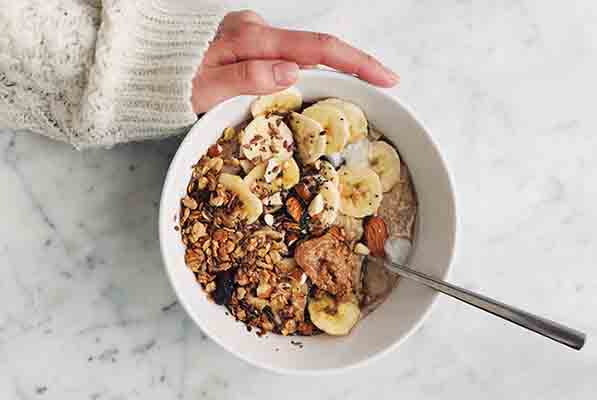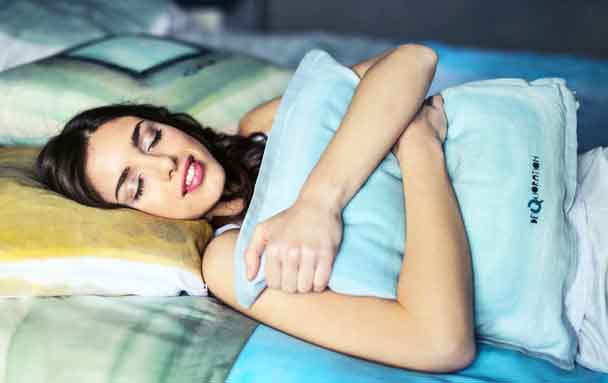Whether you drink a caffeinated beverage or have a meal, the majority of the people have experienced how a specific drink or food could impact their energy or alertness.
Several people globally, suffer from insomnia or symptoms of it and are constantly looking for that wonder drink or food that will help them get a good sleep.
Diet and sleep are both a bit complex, which means there is no single magic food that will guarantee you to have a good sleep. Avni says sleep is impacted by several factors such as your food habits, lifestyle, or certain underlying physical conditions.
Not getting a good night’s sleep could also lead to several health-related issues. There are some foods and drinks that could boost your chances of getting a good night’s sleep says India’s eminent Dietician, Avni Kaul.
Certain foods that could impact sleep
Several researchers, and sleep experts, have done various types of studies to discover the best foods for sleep. While the research gives some important clues, it has never been conclusive.
Additionally, the range of varieties of most foods, where they get cultivated, and their nutrient profile could be different. For example, some varieties of red grapes have high levels of melatonin while others have literally none. Climate and growing conditions might further change the nutrients in any specific food product. That said, there are indications that specific foods can make one sleepy or promote better sleep.
Dietary selections impact more than energy and sleepiness; they could play a major role in things such as weight, cardiovascular health, and blood sugar levels, simply to name a few. For that reason, it is important to consult a doctor or a Dietician before making significant alterations to your daily diet. Doing so ensures that your food selections support not only your sleep but your entire health.
Rice –Carbohydrate consumption and sleep have mixed outcomes. A study of adults done in Japan found that those who daily ate rice reported better sleep compared to those who ate more bread or noodles. This study only identified a link and cannot demonstrate causality, but it supports earlier research that indicated that eating foods with a high glycemic index around 4 hours ahead of bedtime helped with falling asleep. While at the same time having sugar-based beverages and sweets is known to disturb or delay sleep.
Kiwi –Kiwi fruit has several vitamins and minerals. In a study, people who ate kiwi an hour before going to bed have fallen asleep faster and longer. Perhaps high serotonin levels and anti-oxidants are responsible for inducing good sleep.
Nuts – Nuts such as walnuts and almonds are considered good for sleep. Nuts have melatonin, magnesium, and zinc that are vital for a variety of bodily functions. The above-said combination of components has been found to help older people having insomnia.

Malted night-time milk –Malted milk is formed by mixing milk and a particularly formulated powder that has primarily wheat flour, malted wheat, and malted barley besides sugar and an assortment of vitamins. Past studies indicate malted milk before bedtime lowers sleep disruptions.
Fatty fish –A study found that fatty fish could be the top food for better sleep. This study was done over a period of 1 month which found that those who ate salmon thrice a week, had better overall sleep. Fatty fish has vitamin D and omega-3 which are needed for the regulation of serotonin. This study was done during winters when the natural source of vitamin D, that is the sunlight, is usually lower.
Diet and sleep –It is ok to want to find food that makes one sleepy or the single best food for sleep, but it is important to be realistic. Sleep is a complicated procedure impacted by several things including mental health, light exposure, and underlying physical causes.
Diet is also versatile. It is not merely one food; instead, it is a collection, impacted by when, what, and how much you eat throughout a day or month. A person could have distinct reactions to several diets, making it difficult to generalize the perfect diet for everybody.
Provided the complexity of diet and sleep, for several people it could be more meaningful to focus on the big picture — healthy sleep and diet choices — instead of individual foods and drinks.
Healthy diet for sleep –As a Dietician, Avni recommends eating a balanced and consistent diet that is made up mainly of vegetables and fruits. Adequately designed, that diet provides stable sources of important vitamins and minerals, including those that will promote sleep.
Several principles of a balanced and consistent diet go in sync with usual tips for avoiding sleep disruptions linked to food and drink:
Restrict caffeine consumption, particularly, in the afternoon and evening when its stimulant impact could keep you up at night. Moderate alcohol intake since it could throw off your sleep cycles even if it makes you sleepy initially. Try not to have food too late so that you are not still digesting it at bedtime and are at less risk of suffering from acid reflux. Be particularly, careful with spicy and fatty foods late during the evening.
Sleep hygiene
Your sleep surroundings and daily lifestyle when combined are known as sleep hygiene and it plays a vital role in your ability to sleep properly. A healthy sleep surrounding includes a good mattress, pillows, and bedsheets. Having a good nutritious diet and maintaining a healthy lifestyle help one in getting good sleep.
You can also read the blog – Foods You Should Refrain From To Get A Good Night’s Sleep
Source: https ://pubmed.ncbi.nlm.nih.gov/22826693/ , https ://pubmed.ncbi.nlm.nih.gov/5067672/


